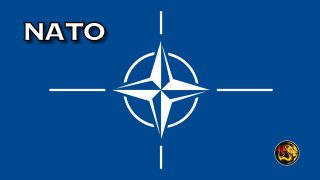
By Stefan J. Bos, Chief International Correspondent Worthy News
BUDAPEST (Worthy News) – Hungarian President Tamás Sulyok has signed a bill allowing Sweden’s entry into NATO, but Budapest declined to endorse Dutch Prime Minister Mark Rutte as the next chief of the military alliance.
Sulyok’s signature cleared the way for Sweden to become NATO’s 32nd member state in a period when Western leaders fear a broader war with Russia, which invaded Ukraine in 2022.
Yet, Hungarian Foreign Minister Péter Szijjártó made clear Hungary won’t agree with all NATO moves, including plans to make Dutch Prime Minister Rutte’s NATO’s next secretary general.
He referred to Rutte’s role in criticizing the Hungarian government’s perceived lack of democratic credentials.
Rutte supported the European Union’s decision to freeze billions of euros in European Union funding for Hungary due to the rule of law concerns.
“We certainly can’t support the election of a man to the position of NATO’s secretary general, who previously wanted to force Hungary on its knees,” Szijjártó said.
Critics view the rhetoric as part of nationalist Prime Minister Viktor Orbán’s campaign ahead of the upcoming European Parliament elections, focusing on Hungary’s sovereignty.
Yet Western diplomats and analysts believe that Hungarian Orbán may still agree on Rutte’s candidacy under pressure from the United States, which is considering sanctions against Hungary over its rule of law situation.
Most NATO member states, including the United States, support Rutte, one of Europe’s longest-serving government leaders, as he has good ties with current U.S. President Joe Biden and his predecessor, Donald J. Trump.
With European NATO nations under U.S. pressure to spend more on defense, Rutte is also seen as crucial to keep the alliance united during warfare in the European continent.
Copyright 1999-2026 Worthy News. This article was originally published on Worthy News and was reproduced with permission.
Latest News from Worthy News
The Trump administration has finalized a sweeping reciprocal trade agreement with Taiwan, confirming a 15 percent U.S. tariff rate on Taiwanese imports while securing broad new market access and purchase commitments for American goods.
Democrats are applauding White House border czar Tom Homan’s Thursday announcement that immigration enforcement operation in Minnesota will end next week.
Democrats in the U.S. Senate tanked the Homeland Security full-year funding bill in a last-ditch vote Thursday, all but guaranteeing a partial government shutdown starting Saturday.
Mourners in a remote Canadian town grappled Thursday with the aftermath of one of the country’s deadliest school shootings in decades, as families, survivors and leaders reacted to the tragedy that left eight victims — most of them children — dead, along with the 18-year-old suspect.
A gunman who opened fire at a school in southern Thailand’s Hat Yai city on Wednesday wounded a teacher and a student before being detained, authorities said, in a rare attack that sent students and staff into panic.
The Republican-led House of Representatives has passed the Safeguard American Voter Eligibility (SAVE) America Act, advancing legislation that would require proof of citizenship to register to vote and photo identification at the polls. The bill now heads to the Senate, where its future remains uncertain amid strong Democratic opposition.
Israel’s Ministry of Defense announced on Wednesday that its advanced David’s Sling air and missile defense system has completed a series of complex modernized tests, a development officials say bolsters the country’s defensive posture as tensions with Iran escalate and the United States prepares military options that could include direct strikes.







